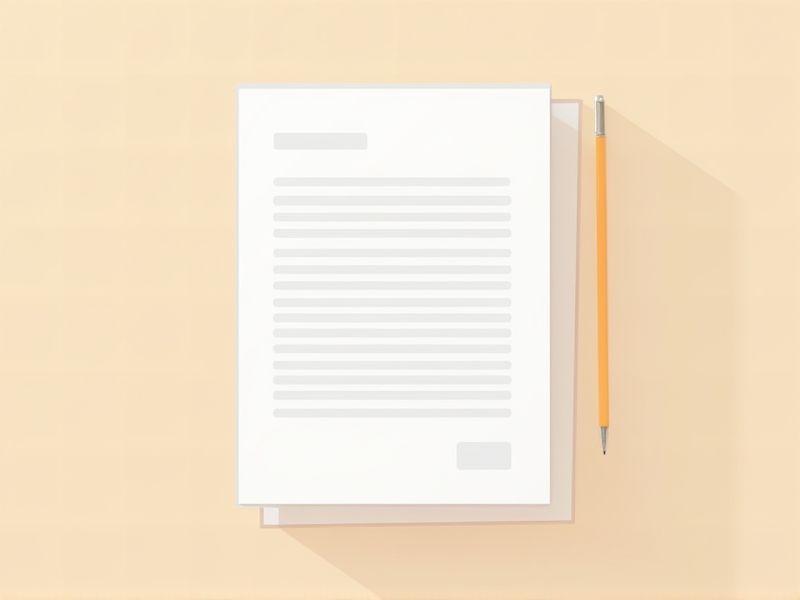
A letter of justification is a formal document used to explain the reasons behind a particular decision, request, or action. It helps clarify situations where approval or understanding is needed from an authority or organization. Writing a clear and concise justification letter is essential to ensure your message is effectively communicated and your request is considered. This format typically includes a polite greeting, a detailed explanation of the circumstances, the specific justification, and a respectful closing. To help you craft a professional and well-structured letter, explore the various templates available in this article.
Samples of letter format for justification
Letter Format For Justification Of Absence
Formal Letter Format For Justification Of Expenses
Letter Format For Justification Of Salary Increase
Letter Format For Justification Of Project Delay
Letter Format For Justification Of Academic Appeal
Letter Format For Justification Of Medical Leave
Letter Format For Justification Of Policy Change
Letter Format For Justification Of Tuition Reimbursement
Letter Format For Justification Of Promotion Request
Letter Format For Justification Of Performance Review
Letter Format For Justification Of Travel Expenses
Letter Format For Justification Of Employee Termination
Letter Format For Justification Of Budget Allocation
Letter Format For Justification Of Benefits Denial
Letter Format For Justification Of Work-From-Home Request
Letter Format For Justification Of Overtime Pay
Letter Format For Justification Of Legal Claim
Letter Format For Justification Of Disciplinary Action
Letter Format For Justification Of Leave Of Absence
Letter Format For Justification Of Educational Funding
Important Things to Know when Writing Letter Format For Justification
Proper Heading And Date Placement
Proper heading and date placement are crucial for ensuring your letter is both professional and easy to read. Place your name and address at the top, followed by the date, which should be aligned to the left or right depending on your preference. If you are addressing someone specifically, include their name and address beneath the date, following the same alignment. This clear organization not only enhances the aesthetic of your letter but also provides essential information at a glance.
Clear Subject Line Stating The Purpose
A clear subject line is essential in a letter format for justification, as it immediately communicates the purpose to the recipient. This helps in capturing attention and ensures that your letter is prioritized amidst other correspondence. Make sure to use specific and concise wording in the subject line to avoid any ambiguity regarding your intentions. By doing so, you increase the chances of your justification being understood and addressed promptly.
Polite And Formal Tone Throughout
Maintaining a polite and formal tone is crucial when drafting a letter for justification. This approach not only reflects your professionalism but also fosters a positive impression on the reader. Use respectful language and avoid slang to ensure your message is taken seriously. A well-structured letter that adheres to proper etiquette can significantly enhance your credibility and strengthen your argument.
Detailed Explanation With Relevant Facts
When formatting a letter for justification, it is essential to adhere to standard etiquette and structure to convey your message effectively. Begin with your address and the date at the top, followed by the recipient's address, ensuring clarity on both ends. Use a professional salutation, such as "Dear [Recipient's Name]," and maintain a formal tone throughout, with clear and concise paragraphs outlining your reasons for justification. Ending the letter with a courteous closing, followed by your signature and printed name, reinforces your professionalism and attention to detail in this important correspondence.
Concise Closing And Appropriate Sign-Off
A concise closing is essential in a letter format for justification, as it reinforces your main points and leaves a lasting impression on the reader. Aim to summarize the key reasons for your justification briefly, ensuring clarity and impact without redundancy. Following this, an appropriate sign-off, such as "Sincerely" or "Best regards," helps establish a professional tone and signifies the end of your correspondence. Ensure that you include your name and any necessary contact information below the sign-off to maintain a clear line of communication.
